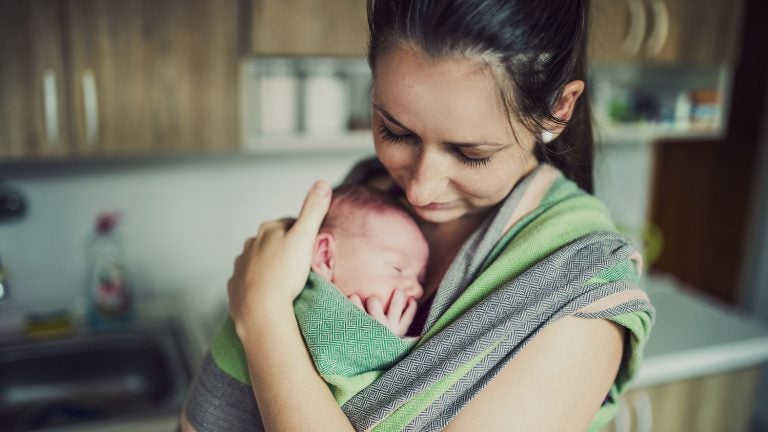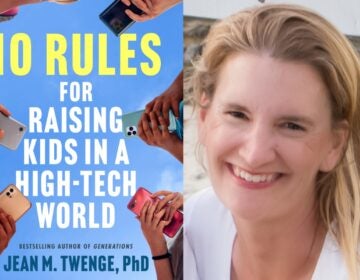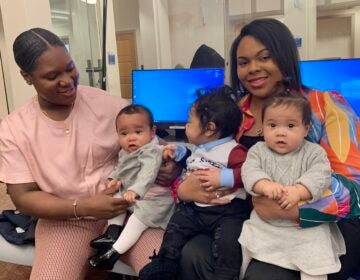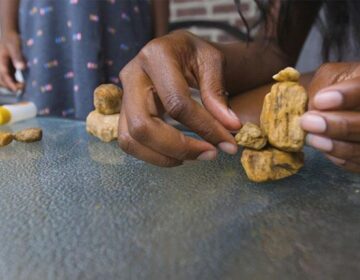What to say to a parent whose child Is born with a disability

Last month, A & E’s reality show “Born This Way” took home an Emmy Award for outstanding unstructured reality program. “Born This Way” has received critical acclaim from its inception last year—it is the first show of its kind to showcase the everyday experiences of young adults who have Down Syndrome—a population that is otherwise nearly invisible from TV. “Born This Way” shows its stars sharing the typical ups and downs that all young adults go through—including finding work, challenges with dating and in finding independence from their parents. The struggles of living with a developmental disability are not hidden in the series but are shown as simply one aspect of the young peoples’ lives.
The show also features the parents of these young people as they help their children to live as independently as possible and also share reflections about their parenting experiences. In one recent episode, they spoke together about how painful it was when their children were born and friends and loved ones didn’t know what to say them. One parent even said that when people came to visit them after their baby was born, they acted more like someone had died.
In the Beginning
I’m a mom raising a son who has autism and intellectual disabilities and when I watched the parents on “Born This Way” share their pain about the lack of support they felt during the beginning of their children’s lives, I felt a profound connection to their experience. There are many times when people (including friends, extended family members, colleagues, acquaintances) aren’t sure how to talk about my son’s disability. His diagnosis came when he was three and that first year was an exhausting rollercoaster of wrapping my mind around his needs, both present and future.
What would it have been like to integrate a child’s diagnosis into the first days or weeks of my child’s life? I wondered, watching the show. What would it have been helpful for people to say to me? I spoke with a number of parents who received their child’s diagnosis at birth or shortly after—and they shared both words that hurt and words that helped them from that vulnerable time in their lives.
Even in cases of the smoothest childbirths, the first few days of a child’s life can mean exhaustion and a mix of emotions for new parents and, swings and surges of hormones for new moms.. Imagine being in that physical and emotional space and receiving unexpected news—news with implications about your child’s health and well-being for the rest of his/her life.
“My world was totally rocked,” said one mom I spoke with, who wished to remain anonymous, whose daughter suffered a stroke in utero and was diagnosed with
Cerebral Palsy. “I couldn’t stop crying. The feelings had nothing to do with not loving my daughter. I was just in shock and was trying to process what the doctors were telling me.”
What You Can Say To Support A New Parent
One in five people has a disability—and many disabilities, including Down Syndrome and other chromosomal abnormalities, Cerebral Palsy, Spina Bifida, blindness, dwarfism and many others can be present at birth or diagnosed shortly after. So it’s likely that each of us will have a friend, family member or colleague who will be in this situation and it’s helpful to think ahead to what words of support you can share.
If your friend or family member has had a baby who is medically fragile, and may be facing surgery and/or other treatment in the NICU, the parent is likely operating in crisis mode. The most important thing to say is I’m here for you. Call/text me anytime. Offer to bring food to the hospital and ask what else they need which might include helping with other children at home, taking care of their pets temporarily, etc.
If your friend or family member has had a baby who is healthy but has been diagnosed with a physical or developmental disability, you can also say I’m here for you. Let your friend know: I’m going to learn about (the disability) with you.
It’s also okay to be honest if you’re not sure what to say that can help. Brooke Slater Goodspeed, whose son has Down Syndrome and autism and who with her husband founded Great Expectations Together, remembers the most helpful thing that a friend said to her shortly after her son’s birth: “I don’t know what to say right now, but I love you and I love your son.” Be a listening ear and be sure not to project your fears or anxieties onto your friend.
Check Your Insensitivity At The Door
What is also clear from parents whom I spoke with are that platitudes don’t help. So many parents reported cringing when someone said “God gives special kids to special people.” Simplifying a complex situation into a neat, little platitude can make parents feel like their new reality—with its blessings and challenges—isn’t really being seen.
For some reason, some people also seem to fixate on not believing the diagnosis is true. One dad I spoke with shared how infuriating it was when his aunt kept insisting that his son “didn’t look like a baby with Down Syndrome.” Her comments were not helpful to him in anyway—it seemed like she couldn’t accept his son’s diagnosis, which he was doing his best to embrace.
Celebrate With The Family
The reality is, parenting a child who is different from the child you imagined takes time to process. What your friend needs most is for you to listen, to keep inviting and including them in social events, to regularly ask how you can best help/support them.
Bring the new baby a gift—clothes, a stuffed animal, blankets…whatever you might bring to any new child.
When a baby comes into the world, we celebrate dreams, hope and possibility. The truth is that no parent knows what the future will hold for their baby and that reality is downright frightening. We cuddle and coo over babies who will grow up to face both mundane and serious challenges—but we put that reality out of our minds and focus on the baby’s sweet innocence.
When a baby is born with a disability, the challenges that they will face are immediately apparent—and that is scary for everyone to face. But as we, as a society, come to better understand the complex and meaningful lives of people with disabilities—through amazing TV shows like “Born This Way” and other books, movies and art that bring us into their experiences and through our own commitment to creating inclusive communities, we will hopefully reach a day when every child who enters the world can be seen for more than his/her disability.
WHYY is your source for fact-based, in-depth journalism and information. As a nonprofit organization, we rely on financial support from readers like you. Please give today.




